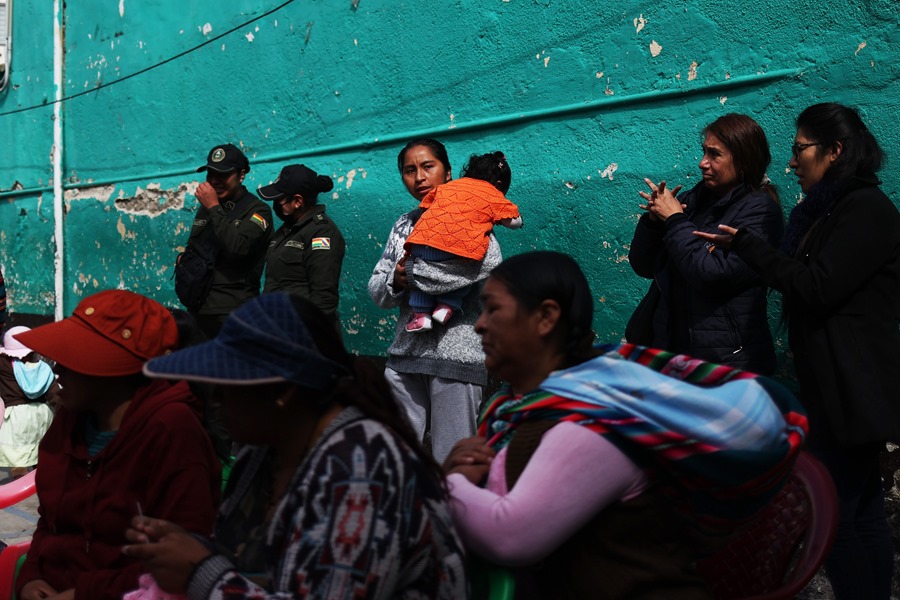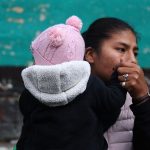
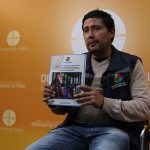
Gina Baldivieso |
La Paz (EFE).- The full fulfillment of basic rights such as better nutrition and access to adequate health and education are some pending issues that Bolivia has with more than a hundred children under six years of age living in the country’s prisons along with to their mothers.
Until 2018, Bolivian legislation allowed children and adolescents up to the age of 17 to remain in prison with their parents, but “serious violations” of the rights of minors were found, the coordinator of the National Mechanism for the Prevention of Crimes explained to EFE. Torture of the Ombudsman’s Office, Juan Ledezma.
He recalled that there were cases of parents who prostituted their daughters in prisons and that “fortunately” a provision was made whereby now “the presence of children from 0 to 6 years old is only allowed” only in women’s prisons.
“Although this is progress, there is still a lot left to do (…) to guarantee the rights of children, especially the basic rights that are not being fulfilled,” he noted.
The official stressed that minors are in prison “because they are children of prisoners” and for this reason “the State should redouble its efforts so that rights are fully guaranteed.”
A recent report from the Ombudsman’s Office on the situation of imprisoned women in Bolivia indicates that until 2023 there were 145 children from 0 to 6 years old living in prison with their mothers.
One of the rights that the entity detected, which is not fully fulfilled, is that of having adequate food.
Each prisoner in Bolivia receives 8 bolivianos daily for food, a little more than a dollar, and women with children have to make ends meet for that money to feed their little ones, something that “concerns” the Ombudsman’s Office.
Ledezma mentioned that international standards establish “the obligation of the State to protect and guarantee differentiated nutrition for children,” but that does not happen.
They cannot access adequate food
The Ombudsman’s Office collected testimonies from women with newborn children who cannot access adequate food, since the food available in prison is not exactly designed for children of that age.
The situation in terms of health is similar, since in prisons “there is no presence of pediatric specialists” and the education and comprehensive development of minors is also worrying.
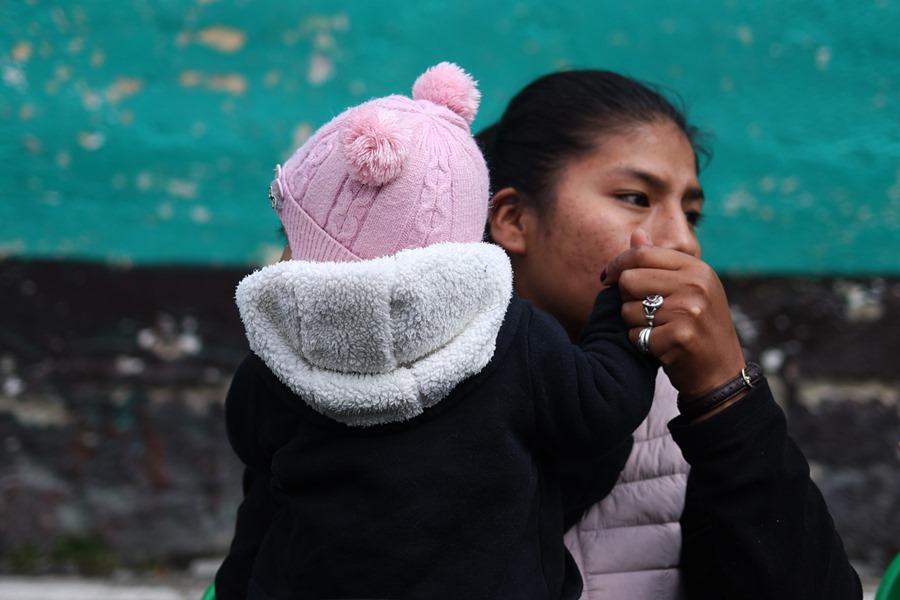
The coordinator cited as one of the few “good examples” the San Sebastián prison, in Cochabamba, where, with the support of an NGO, children leave the prison after having breakfast to study alongside minors who are not in the same situation and then return. to prison to sleep, which gives them “a life closer to normal.”
Situation and suggestions
According to the Ombudsman’s Office, in 2019 there were 18,208 inmates and in 2023, the population reached 28,838, with an increase of 50%, while in the same period the prison budget fell by 15%.
Until June 2024 there were 2,150 women, 12.5% more than the 1,871 registered until November 2023.
Ledezma explained that 41.24% of the women were imprisoned for crimes related to the Controlled Substances Law and 12.28% for non-violent crimes, which means that “more than half of the prison population is there, able to be in preventive detention because he does not represent a danger to the population.”
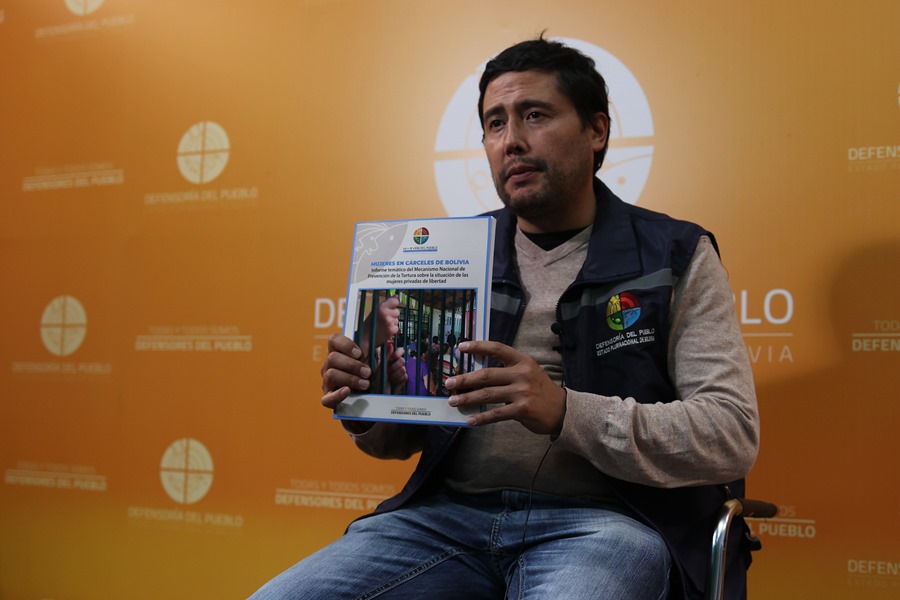
And a problem in Bolivia is the excessive application of preventive detention that results in prison overcrowding, something that is questioned even by international organizations.
Conditions for generating income
The problem is the general reduction of fiscal resources. Given this, Ledezma considered that the inmates should be given the conditions to generate their own income, as occurs, for example, in the Obrajes Women’s Orientation Center (COF) in La Paz.
In that prison, through agreements with an NGO, women have initiatives for the sale of fabrics and laundry, cafeteria and dog grooming services.
Regarding education, the Ombudsman’s Office encourages the San Sebastián model to be replicated in other regions so that minors have comprehensive development.
It is also necessary for prisons to have specific environments for inmates who have just given birth and to promote agreements with hospitals so that minors receive pediatric care at least once a year.
